The greatest gains against poverty in the United States occurred when government was least involved. —Tom Woods
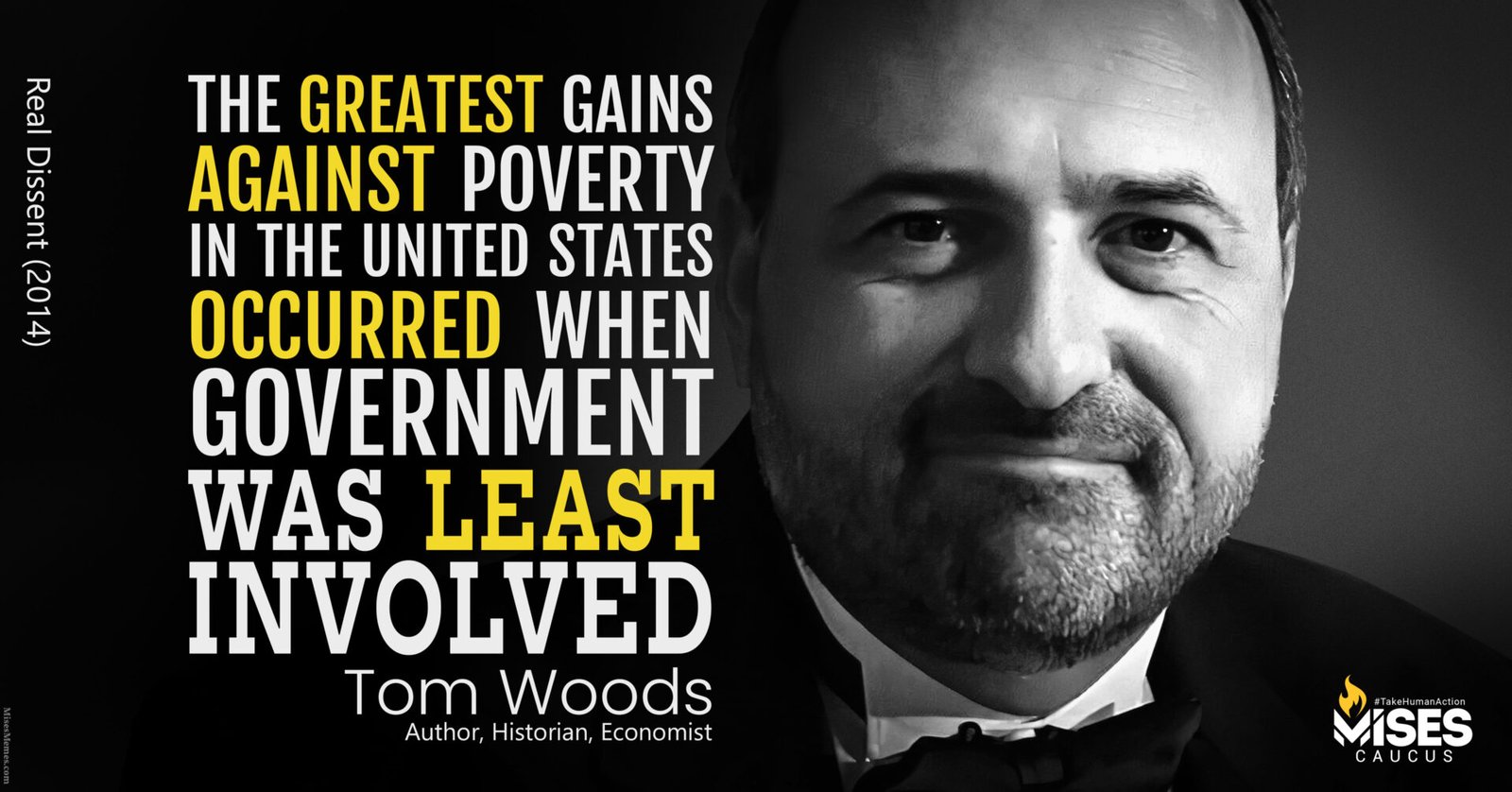

The greatest gains against poverty in the United States occurred when government was least involved. —Tom Woods
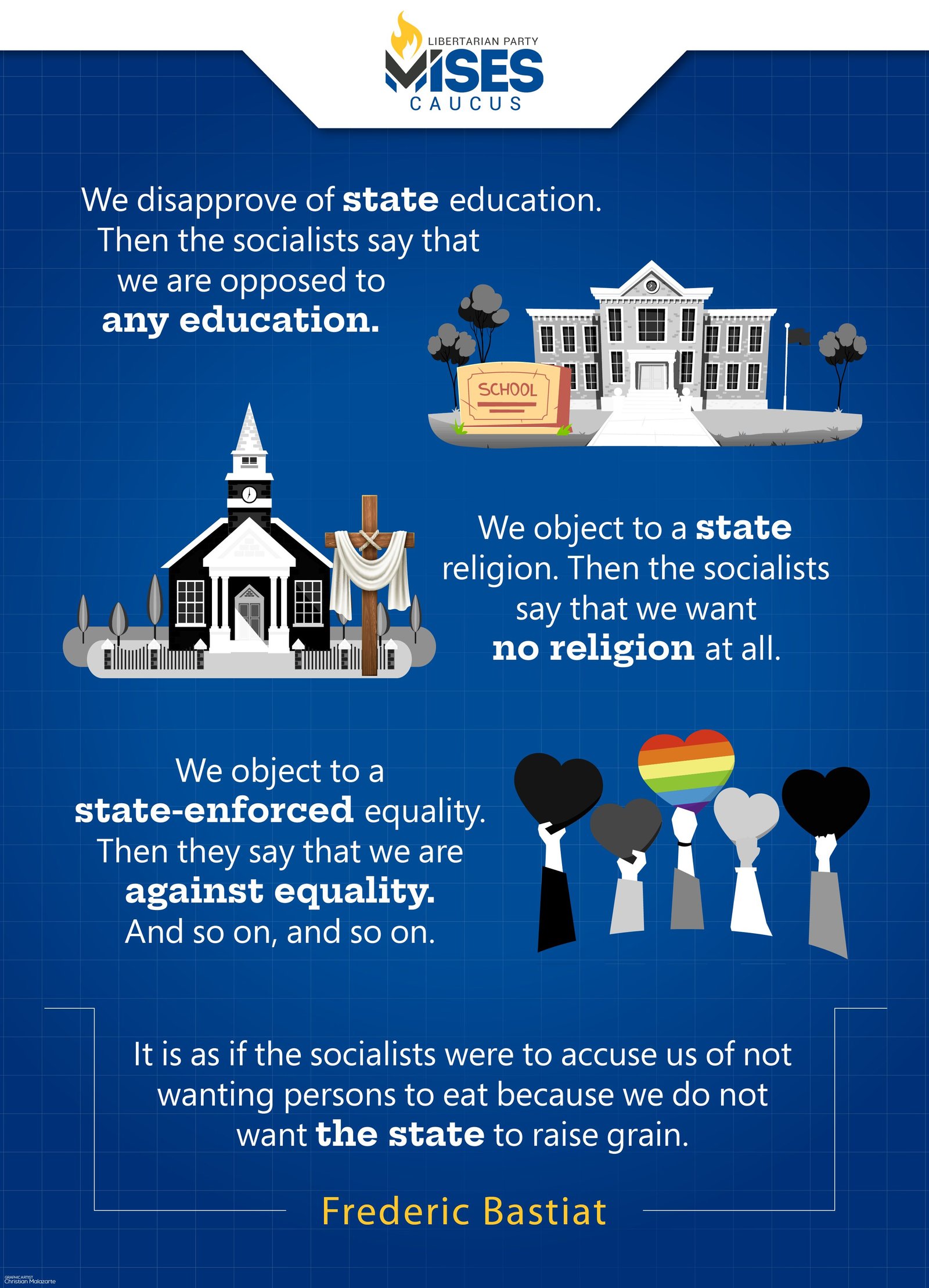

When your money is taken by a thief, you get nothing in return. When your money is taken through taxes to support needless bureaucrats, precisely the same situation exists. —Henry Hazlitt

What protectionism teaches us is to do to ourselves in times of peace what enemies seek to do to us in time of war. —Henry George
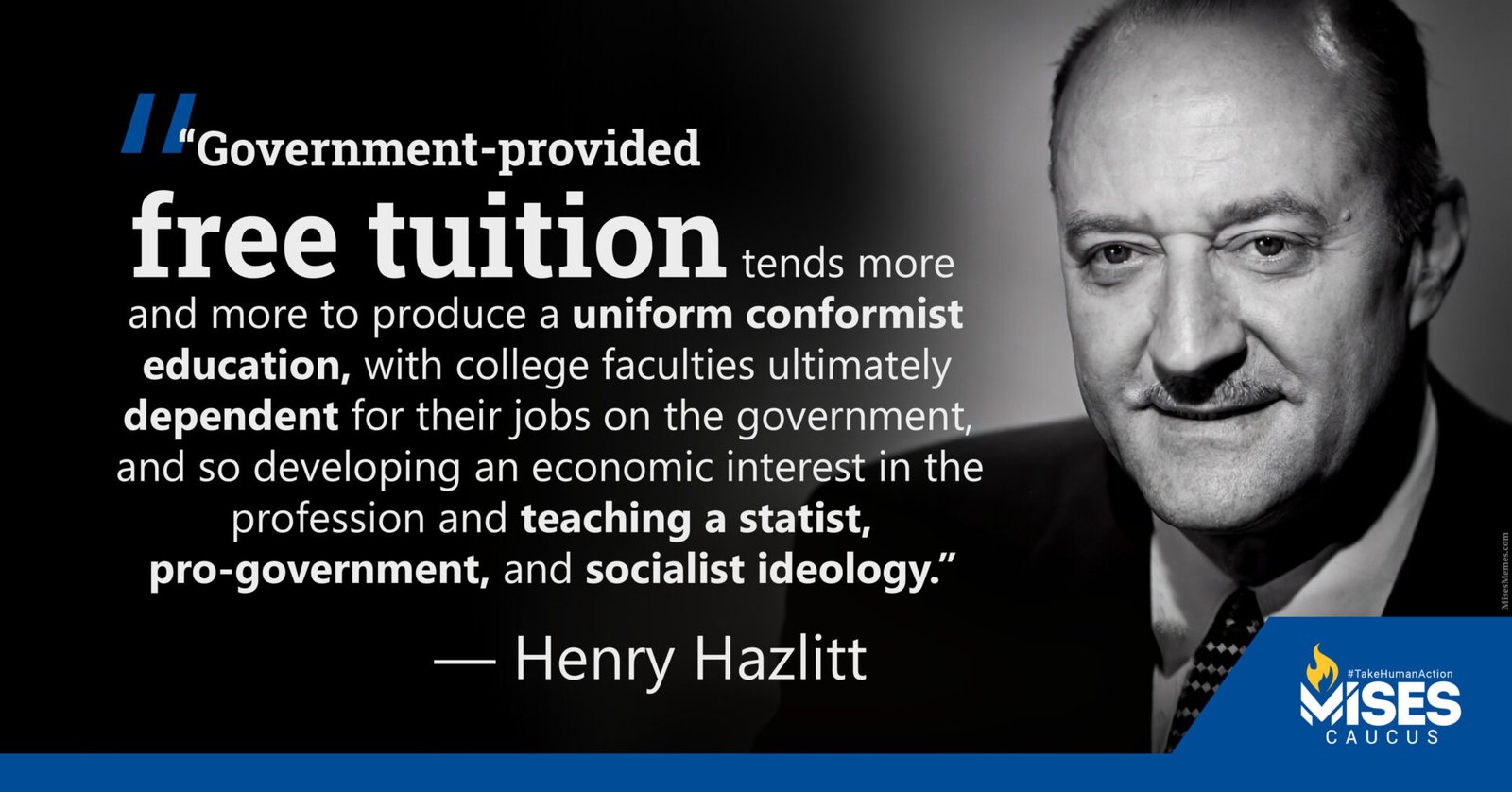
Government-provided free tuition tends more and more to produce a uniform conformist education, with college faculties ultimately dependent for their jobs on the government, and so developing an economic interest in the profession and teaching a statist, pro-government, and socialist ideology. —Henry Hazlitt
Government handouts actually perpetuate poverty by creating a culture of dependency. As welfare policy expert Robert Rector put it: The welfare system that has existed for the past thirty years may best be conceptualized as a system that offered each single mother with two children a “paycheck” of combined benefits worth an average of between $8,500 and $15,000, depending on the state. The mother had a contract with the government. She would continue to receive her “paycheck” as long as she fulfilled two conditions: 1. She must not work. 2. She must not marry an employed male.
Walter Williams: The greatest percentage of poverty is found in female-headed households. Over 70 percent of female-headed households are poor. A large percentage of poor people are children (17 percent); fully 85 percent of black children living in poverty reside in a female-headed household.
Government handouts actually perpetuate poverty by creating a culture of dependency. As welfare policy expert Robert Rector put it: The welfare system that has existed for the past thirty years may best be conceptualized as a system that offered each single mother with two children a “paycheck” of combined benefits worth an average of between $8,500 and $15,000, depending on the state. The mother had a contract with the government. She would continue to receive her “paycheck” as long as she fulfilled two conditions: 1. She must not work. 2. She must not marry an employed male.
Walter Williams: The greatest percentage of poverty is found in female-headed households. Over 70 percent of female-headed households are poor. A large percentage of poor people are children (17 percent); fully 85 percent of black children living in poverty reside in a female-headed household.
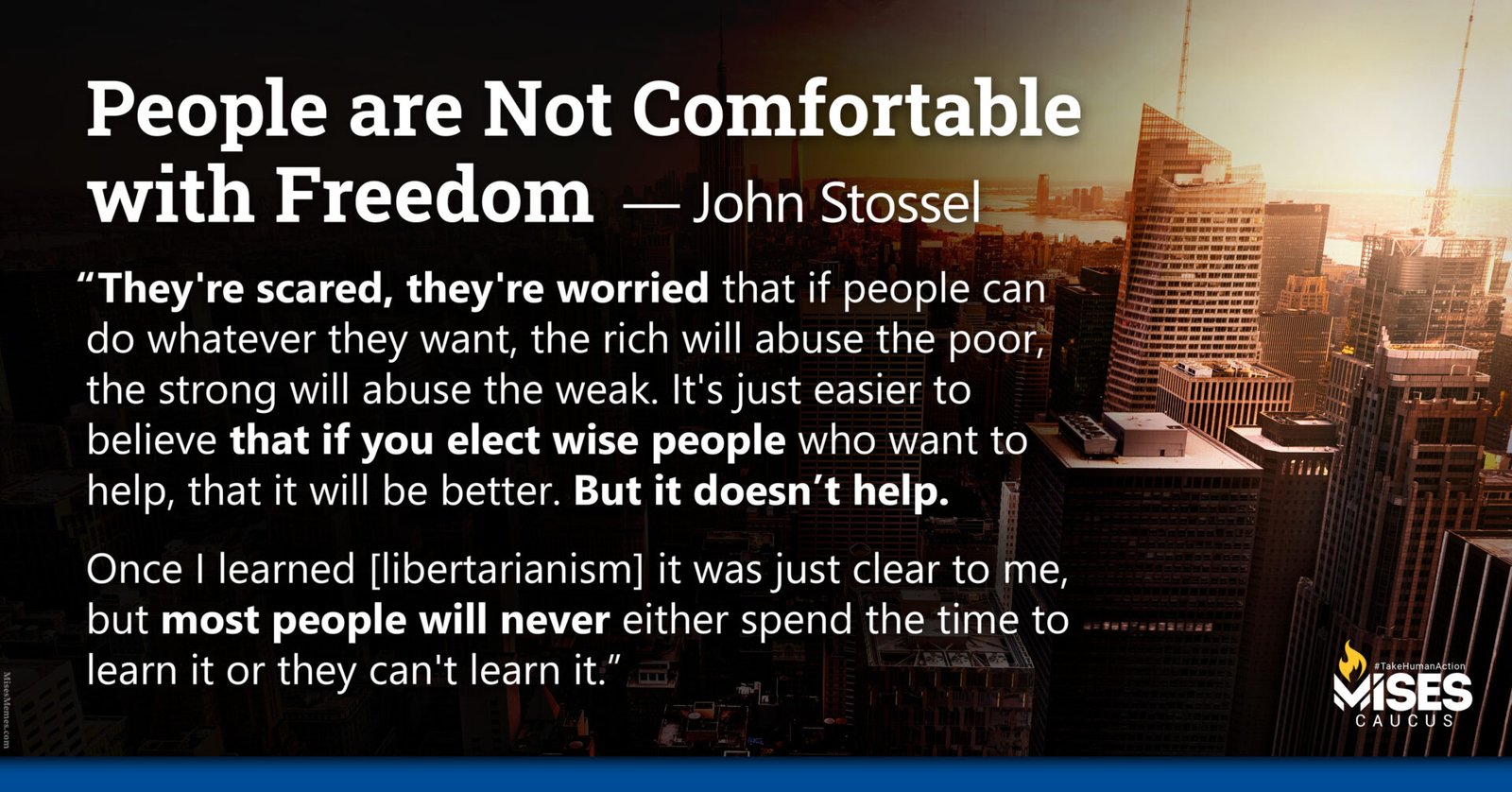
People are not comfortable with freedom. They’re scared, they’re worried that if people can do whatever they want, the rich will abuse the poor, the strong will abuse the weak. It’s just easier to believe that if you elect wise people who want to help, that it will be better. But it doesn’t help.
Once I learned [libertarianism] it was just clear to me, but most people will never either spend the time to learn it or they can’t learn it. —John Stossel
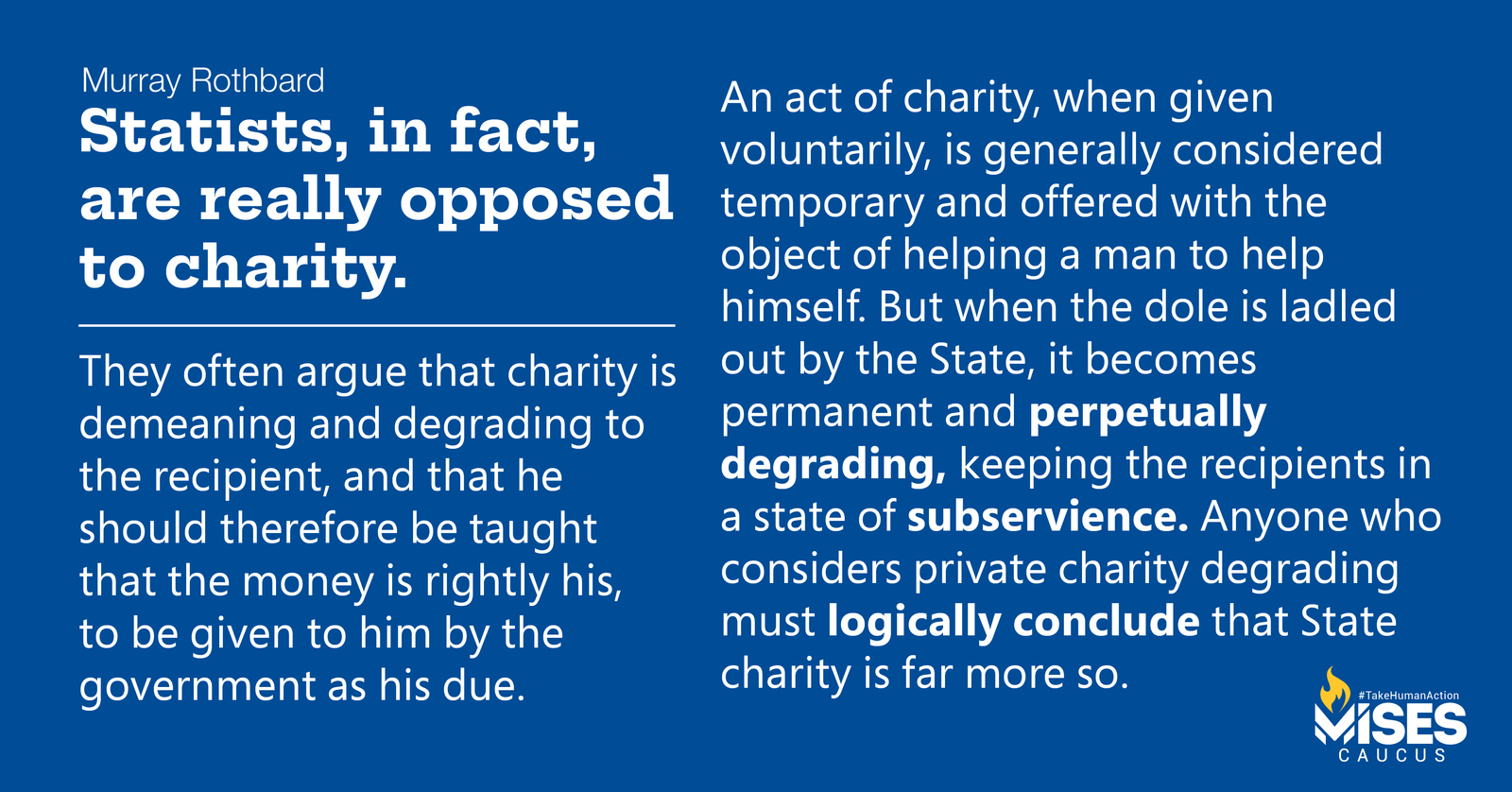
Statists, in fact, are really opposed to charity. They often argue that charity is demeaning and degrading to the recipient, and that he should therefore be taught that the money is rightly his, to be given to him by the government as his due. An act of charity, when given voluntarily, is generally considered temporary and offered with the object of helping a man to help himself. But when the dole is ladled out by the State, it becomes permanent and perpetually degrading, keeping the recipients in a state of subservience. Anyone who considers private charity degrading must logically conclude that State charity is far more so. —Murray Rothbard
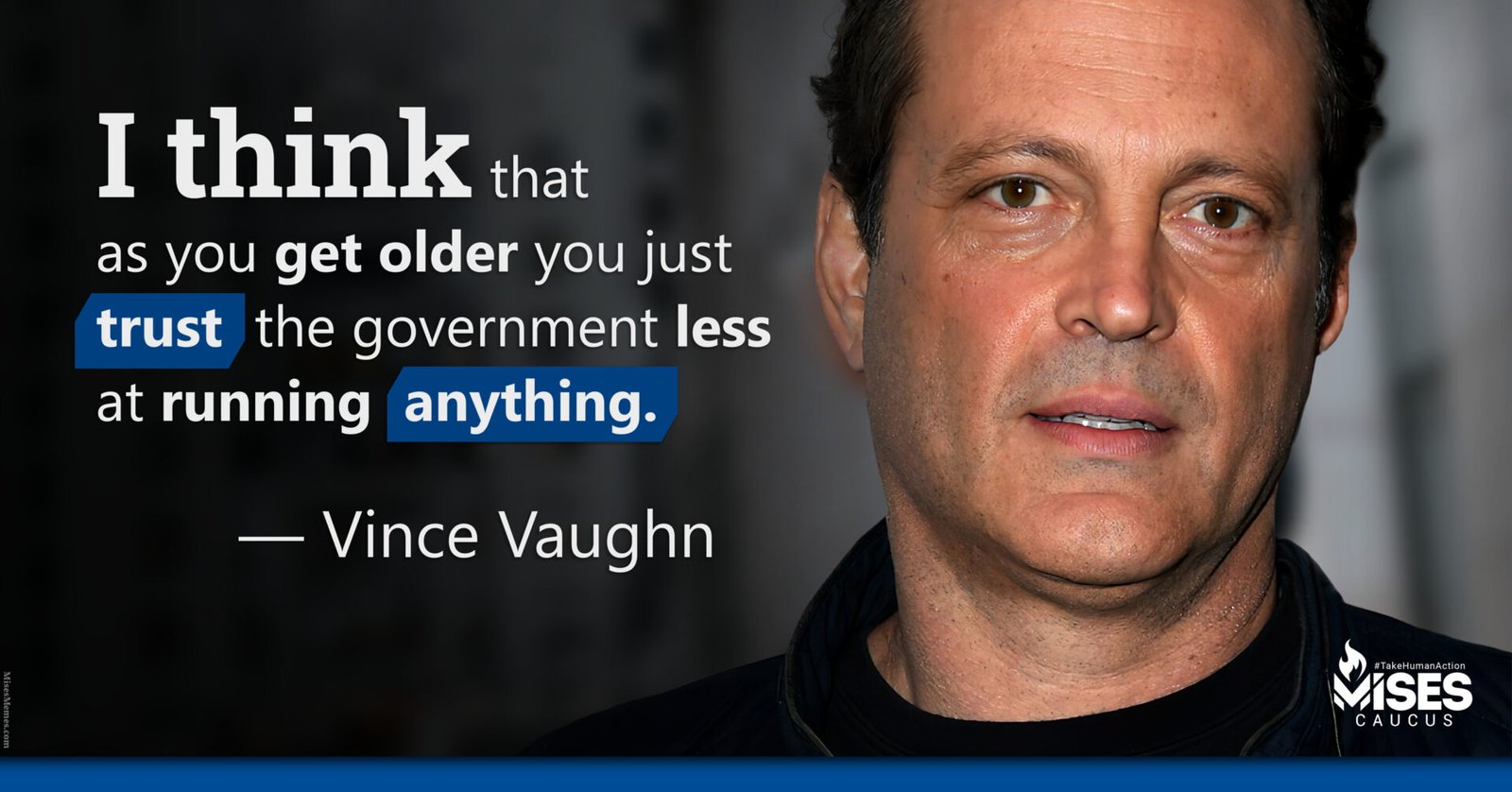
I think that as you get older you just trust the government less at running anything. —Vince Vaughn

Government has a habit of blaming the private sector for its own failings while taking credit for advances we in fact owe to the private sector. —Tom Woods